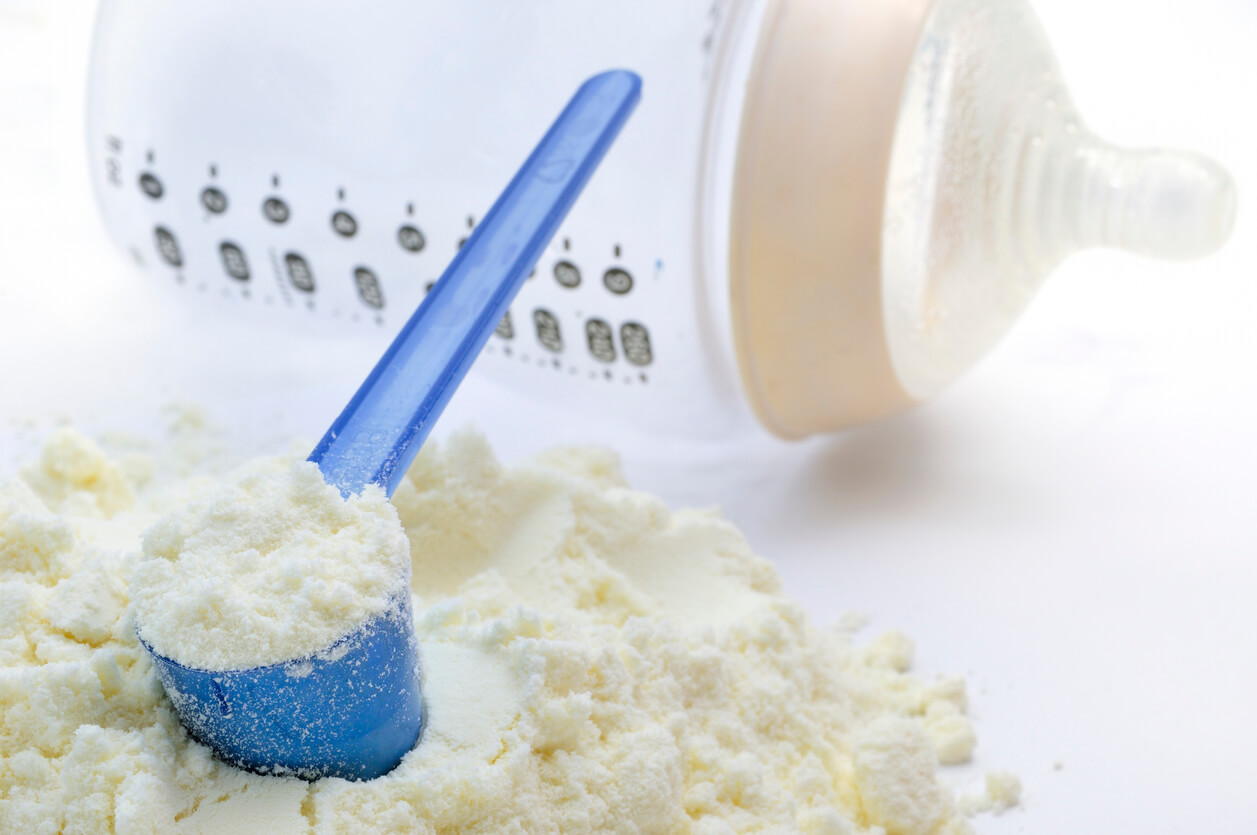
The U.S. Food and Drug Administration has analyzed the 2022 baby formula shortage, calling the event the result of a “triple shock” to the industry.
The agency released an extensive report in March that examined the country’s infant formula market as ordered by the Food and Drug Omnibus Reform Act of 2022. Supply chain issues, the temporary shutdown of a leading manufacturer and a voluntary recall caused a three-pronged attack on the industry, investigators said.
Four companies controlled 99% of the baby formula industry in 2022. Abbott Nutrition, which recalled over 7 million pounds of infant formula in early 2022 because of concerns about bacterial contamination, and later shut down one of its largest plants due to sanitary issues, was parts one and two. The supply chain, already stressed by the COVID-19 pandemic, was the third, the report found.
Baby Formula Shortage Destabilized Market
The baby formula shortage impacted many American families that depend on infant formula to feed their children.
“Safety and supply go hand in hand. We witnessed last year how a safety concern at one facility could be the catalyst for a nationwide shortage. That’s why we are looking to both strengthen and diversify the market, while also ensuring that manufacturers are producing infant formula under the safest conditions possible,” said FDA Commissioner Robert M. Califf, M.D.
“Now, with this strategy, we are looking at how to advance long-term stability in this market and mitigate future shortages, while ensuring formula is safe,” he said.
There have been six recalls of powdered baby formula since 2022, according to the FDA’s recall database. Nearly all the recalls centered on Cronobacter sakazakii contamination. One recall included contamination with Salmonella Newport, which is also known to cause severe illness in infants.
Nearly 100 baby formula lawsuits were filed against manufacturers in 2022 when premature babies developed necrotizing enterocolitis, or NEC, after consuming toxic cow’s-milk-based formulas produced by two companies.
FDA Tried to Mitigate Shortage Issues
During the formula shortage, the FDA took multiple actions to try to offset the issue, the report stated. Those efforts included working with domestic formula producers by frequently communicating and sharing data with manufacturers about production and supply chain issues.
The FDA also worked with the suppliers of raw and packaging materials, through the Defense Production Act, to prioritize the needs of the formula manufacturers.
It engaged the U.S. Department of Health and Human Services to mobilize Operation Fly Formula, an emergency transport of formula from other countries. Between May and September 2022, HHS helped coordinate more than 70 Operation Fly Formula shipments from Europe, Asia and North America to import 6 million pounds of formula to the U.S.
Long-term National Strategy Expected in 2024
The FDA called for the initial strategy, published in March, and another study to be conducted by the National Academies of Science, Engineering and Medicine. The long-term strategy is due to Congress one year after FDORA enactment, or 90 days from the completion of the NASEM report, according to the FDA.
“The events that led up to and ultimately resulted in the voluntary recall of certain infant formula products in February 2022 shocked the infant formula supply in the U.S., creating an unparalleled challenge for parents and caregivers,” said Susan Mayne, director of the FDA’s Center for Food Safety and Applied Nutrition. “Since then, the agency has had ongoing and extensive engagement with the infant formula industry to identify and implement opportunities to strengthen preventive control practices.”
Mayne said the strategy released in March will help increase the resiliency of the infant formula market “as the agency continues its critical work to improve industry’s processes and programs for the protection of those who rely on infant formula while incentivizing additional infant formula manufacturers to enter the market.”
The long-term national strategy to improve preparedness against infant formula shortages is expected to be delivered to the public in early 2024.